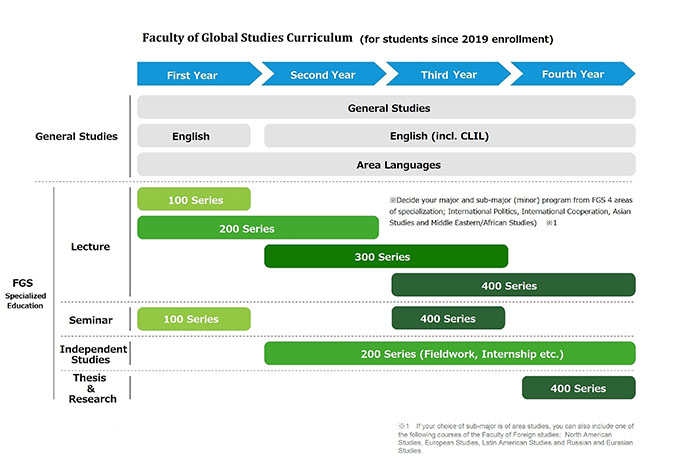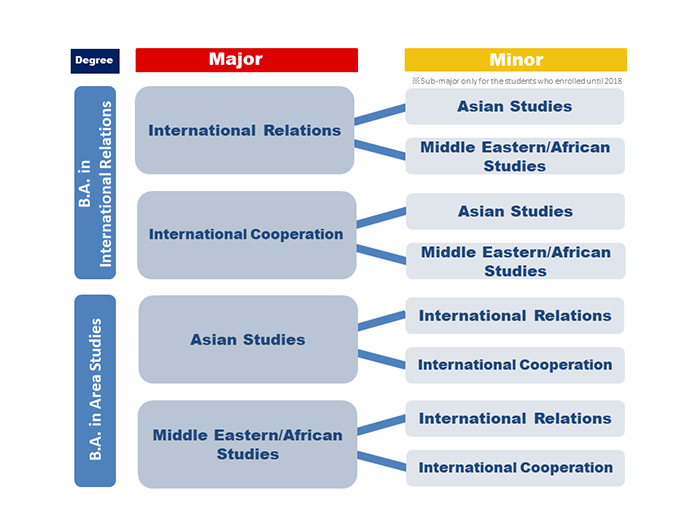Curriculum
Curriculum for the students until 2018 enrollment
A Lavish and Well-Structured Curriculum
The Faculty of Global Studies offers lectures related to International Relations and Area Studies. International Relations is divided into two fields, namely International Politics, and Civil Society/International Cooperation, while Area Studies is also divided into two, namely Asian Studies and Middle Eastern/African Studies. FGS offers a wide spectrum of courses in global studies, sharing the perspectives of these two fields and four branches. This new system enables students to acquire knowledge from both global and local perspectives, an approach to education not available elsewhere in Japan.

Courses are offered in groups of four levels, namely introductory, basic, specialized, and applied. These courses are numbered from 100 through 400, in the manner followed with reference to higher education in the United States and Europe.





Major and Minor
At FGS, students acquire knowledge via a blend of Global Studies, which is constituted of International Relations, and Area Studies. Depending on what they envision as their future career, they may shift emphasis between the two disciplines and four fields. *
Specifically, students first choose either International Relations or Area Studies as their major, and then choose another field of study from the other discipline as their minor.
By so doing, all students graduating from FGS obtain skills and proficiency related to two areas of specialization.





